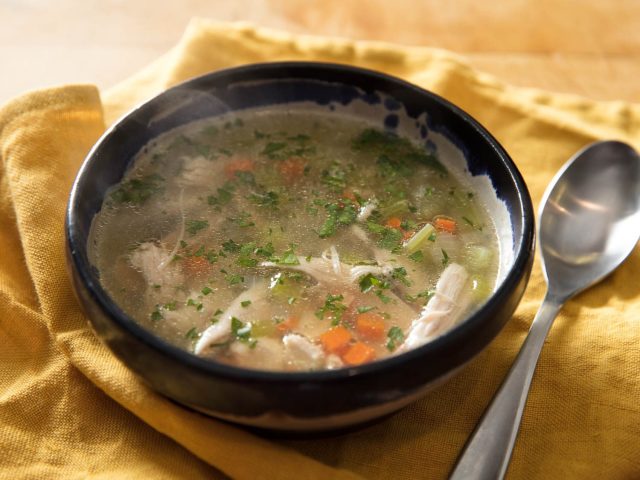Regularly eating soup might help you shed some unwanted pounds, too. Several studies have shown that when soup is eaten before a meal, it fills you up and helps you eat fewer calories for the entire meal. In one study, when people consumed soup for a snack instead of chips and pretzels, they lost 50% more weight -- even though both the soup and snacks, as well as the total day's diet, had the same amount of calories.
What's the slimming secret of soup? Binding water into food slows down gastric emptying, keeping your stomach fuller for longer, according to Barbara Rolls, a professor of nutritional sciences at Pennsylvania State University who has authored studies on soup and its effects on satiety, and wrote "The Ultimate Volumetrics Diet." Plus, she added, "the water in soup adds weight and volume so that you can have a satisfying amount without too many calories."
"Soups still contains the whole food, so fiber is still intact, but it's easier to digest because it's cooked," said Foroutan. Juice is high in phytonutrients and antioxidants, but if it's made from all fruit, it can be very high in sugars (even though they're natural sugars), and this can cause one's blood sugar to spike and drop, which can lead to feeling more tired overall, she explained.
For example, a single souping cleanse day on Splendid Spoon includes five soups, such as beet balsamic bisque, fennel consommé, cauliflower coconut, butternut turmeric and red lentil dal. After the cleanse, you continue the week-long plan with the company's breakfasts and lunches for five days, which include smoothies and bowls. Dinner is your choice. Day 7 is a "wander day" to enjoy eating as you typically would.

